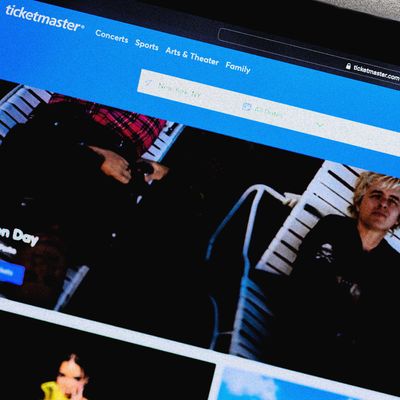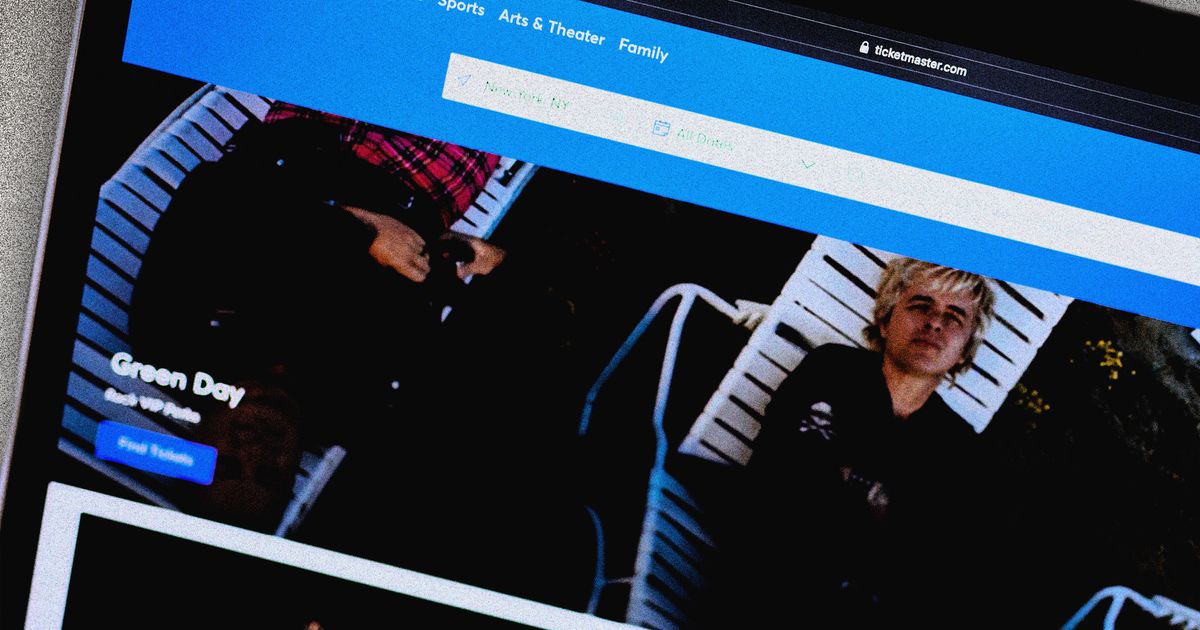
Photo-Illustration: Intelligencer; Photo: Getty Images
On Thursday, the U.S. Department of Justice announced that it had filed an antitrust lawsuit against Live Nation Entertainment Inc., the parent company of Ticketmaster, alleging that the firm has monopolized the live-entertainment industry, resulting in higher tickets prices and fees for consumers. The federal government was joined by the attorneys general of 29 states and Washington, D.C., in its suit. Here’s what we know about the suit and its prospects in court.
U.S. Attorney General Merrick Garland announced the federal government’s lawsuit at a Thursday-morning press conference, accusing Live Nation of violating the Sherman Antitrust Act. “We allege that Live Nation has illegally monopolized markets across the live concert industry in the United States for far too long. It is time to break it up,” he said.
In the 128-page lawsuit filed in the Southern District of New York, the Justice Department describes Live Nation and its subsidiary Ticketmaster as “the gatekeeper for the delivery of nearly all live music in America today.” The federal government alleges that Live Nation has acquired smaller regional promoters and retaliated against venues that have worked with its rivals as a way to consolidate its power in the industry. The Feds also accuse the company of using exclusive contracts to lock in venues and bar them from using rival ticketing companies as well as using its ownership of major venues to force artists to use its promotions services or risk not being able to play the venue.
The filing refers to the plethora of fees that music lovers are forced to pay whenever they purchase a ticket to a show, calling them a “Ticketmaster Tax” that the government says “far exceed fees in comparable parts of the world.” Fan complaints about Ticketmaster reached new heights during the chaotic ticket rollout for Taylor Swift’s Eras Tours.
The government also alleges that Live Nation formed a partnership with Oak View Group, a potential competitor that it accuses of “influencing venues and artists for the benefit of Live Nation,” including helping to flip six venues to Ticketmaster. Doing so, the government says, violates the merger between Live Nation and Ticketmaster that it approved in 2010, which included a consent decree that barred the company from pressuring or retaliating against venues over use of its services. That decree was extended in 2019 after the federal government alleged that Live Nation had violated the order.
“Taken individually and considered together, Live Nation’s and Ticketmaster’s conduct allows them to exploit their conflicts of interest — as a promoter, ticketer, venue owner, and artist manager — across the live music industry and further entrench their dominant positions,” the suit reads.
The Justice Department wants to force Live Nation to divest from Ticketmaster “along with any additional relief as needed to cure any anticompetitive harm.” It’s also calling for the dissolution of Live Nation’s ticketing agreement with the Oak View Group and for the company to provide necessary relief to “restore competitive conditions” in the markets affected by Live Nation’s actions. The lawsuit also requests a jury trial in the matter, which is uncommon for antitrust cases pursued by the government.
The timeline for a potential trial is unclear, but it would be a lengthy one. An antitrust case filed by the Justice Department against Google in 2020 over its search engine just wrapped up closing arguments earlier this month.
In a statement, Live Nation Entertainment rejected the Justice Department’s claims, saying that the lawsuit does nothing to address concerns from consumers and that the company’s 1.4 percent annual net profits are “the opposite of monopoly power.”
“We will defend against these baseless allegations, use this opportunity to shed light on the industry, and continue to push for reforms that truly protect consumers and artists,” it read.





